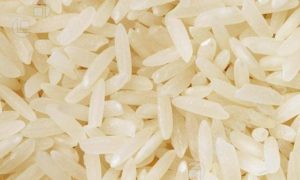Record rice stocks may prompt higher public distribution

India’s rice stocks are at a record high, nearly four times the buffer target, with FCI holding 50 million tonnes. The government seeks to reduce inventories, considering increasing allocations in the PMGKAY program and lowering open market sales prices. Despite a 7% drop in procurement, surpluses remain high, prompting measures to manage economic costs. Rice inflation stood at nearly 12% in April, with cereal inflation at 8.63%. A robust crop is expected this year.
India’s rice stocks in state-owned granaries are at a record high and nearly four times the summer buffer target, prompting the Union government to look at ways to reduce inventories in the world’s second-biggest producer, which expects a robust crop this year, an official said.
In July last year, the government imposed a ban on export of non-basmati white rice to cool high food inflation, especially of cereals, boosting local supplies. Food Corporation of India (FCI), the state-run grain buyer, currently holds large rice surpluses despite a 7% drop in procurement in the current season. Procurement refers to the FCI’s purchases of cereals at minimum support prices.
The government is required to have 13.5 million tonnes of rice as buffer stock beginning July 1. Currently, FCI has nearly 50 million tonnes of the grain, including 18.2 million tonnes with millers.
The government has to pare stocks to make way for this year’s summer-sown or kharif harvest. The government expects a good rice crop as the June-September monsoon has been predicted to be above average by the India Meteorological Department.
Farmers typically start planting rice in June and July with the onset of the rainy season and start harvesting the crop from October. New season purchases by FCI would further bump up rice inventories in its warehouses.
To dispose of at least 15 million tonnes of stocks, the food ministry is weighing a proposal to increase allocation of rice in the Pradhan Mantri Garib Kalyan Anna Yojana (PMGKAY) , a programme that gives free grain to nearly 813 million beneficiaries of the National Food Security Act, the official said.
The government wants to shed stocks also to reduce costs of storing huge excess stocks, known as economic cost. FCI typically needs 36 million tonnes of rice to cater to the PMGKAY.
Senior officials are also reviewing a proposal to reduce the price at which it offers rice for open market sales to boost availability and ease prices. Currently, the government offers FCI rice at ₹29 a kg to bulk buyers. However, traders haven’t bought significant quantities of FCI rice because it is available at a cheaper rate in private markets, leading to stocks piling up.
Despite surplus stocks, rice inflation is in the double digits. In April, cereal inflation increased 8.63% from a year ago against a rise of 8.37% in the previous month. Rice inflation stood at nearly 12% in April.
“Rice prices are still on the higher side because the government’s open market sales scheme in rice hasn’t picked up because of price issues and also because much of it is of the fortified variety,” said Abhishek Agrawal of Comtrade.
Source Link : https://www.hindustantimes.com/india-news/record-rice-stocks-may-prompt-higher-public-distribution-101716835608349.html














